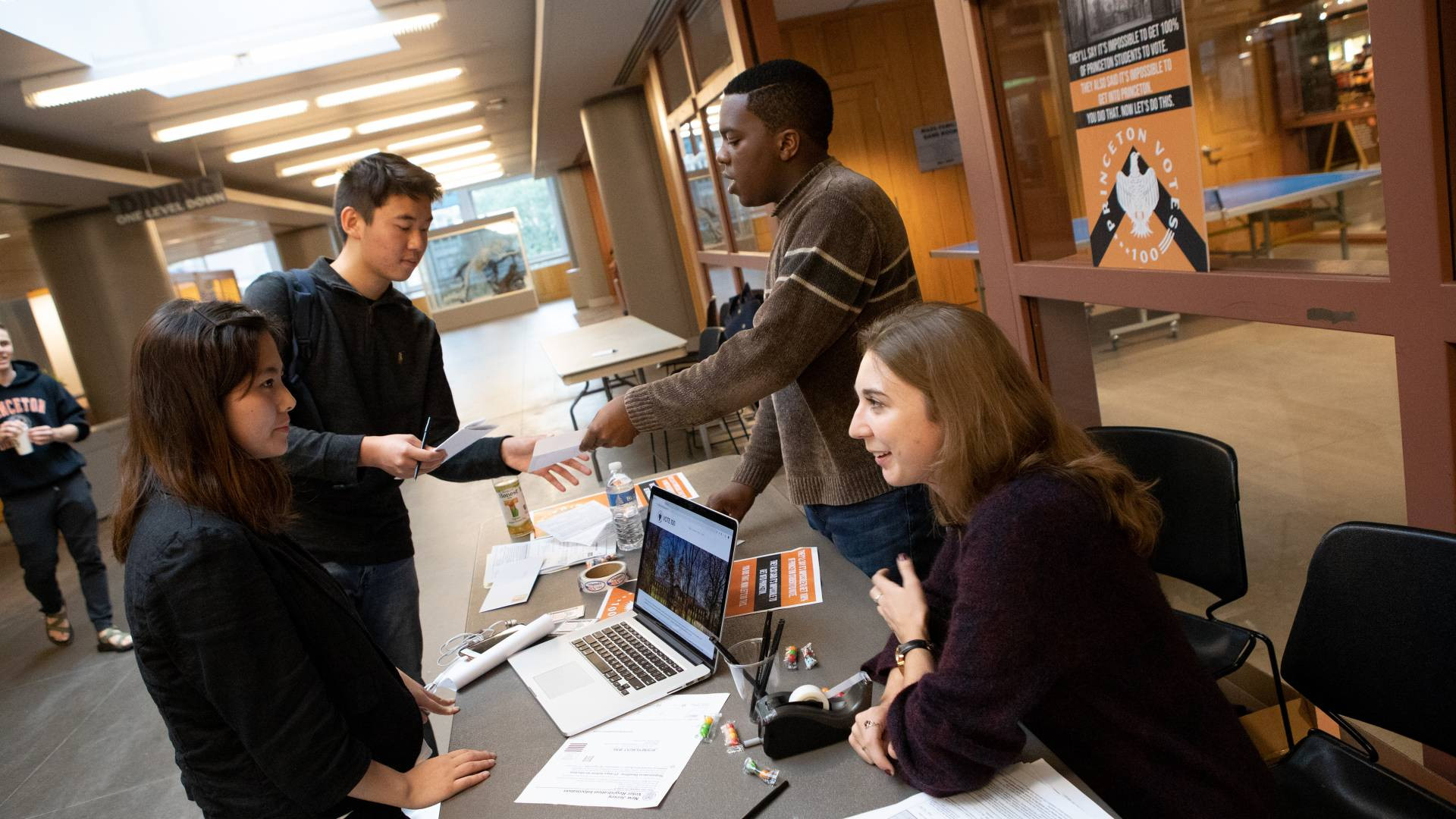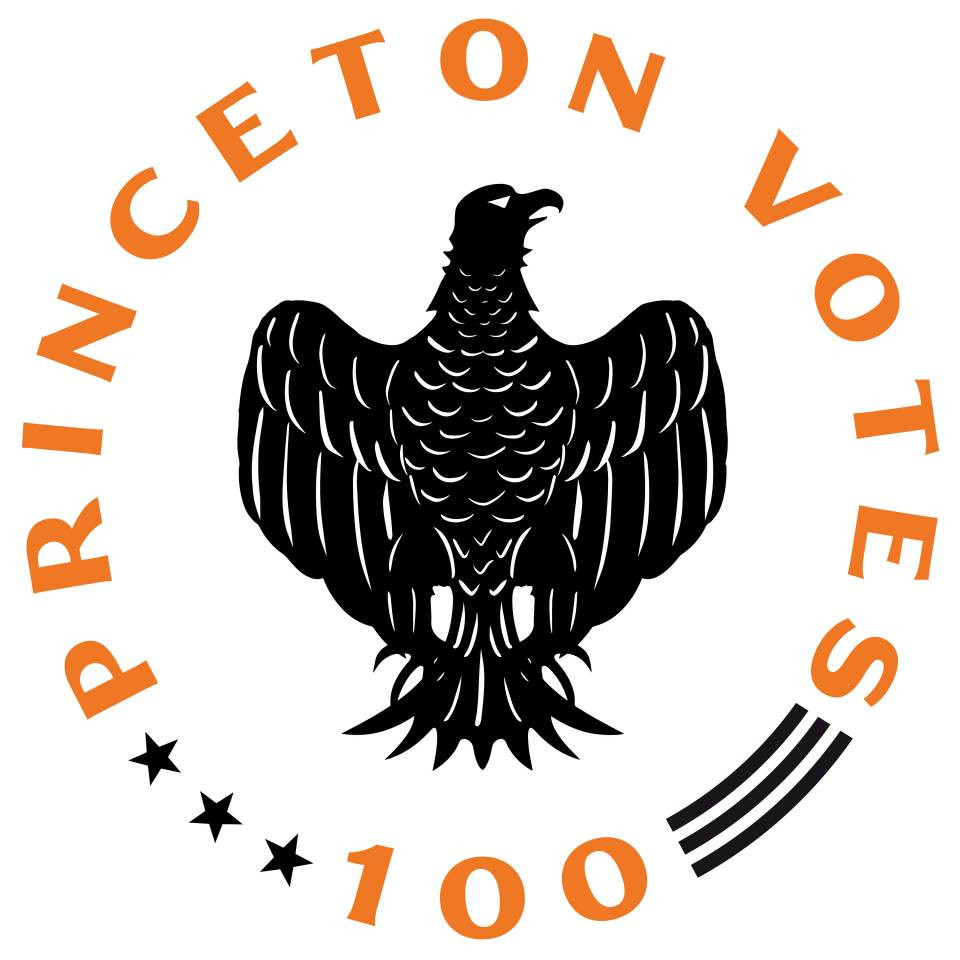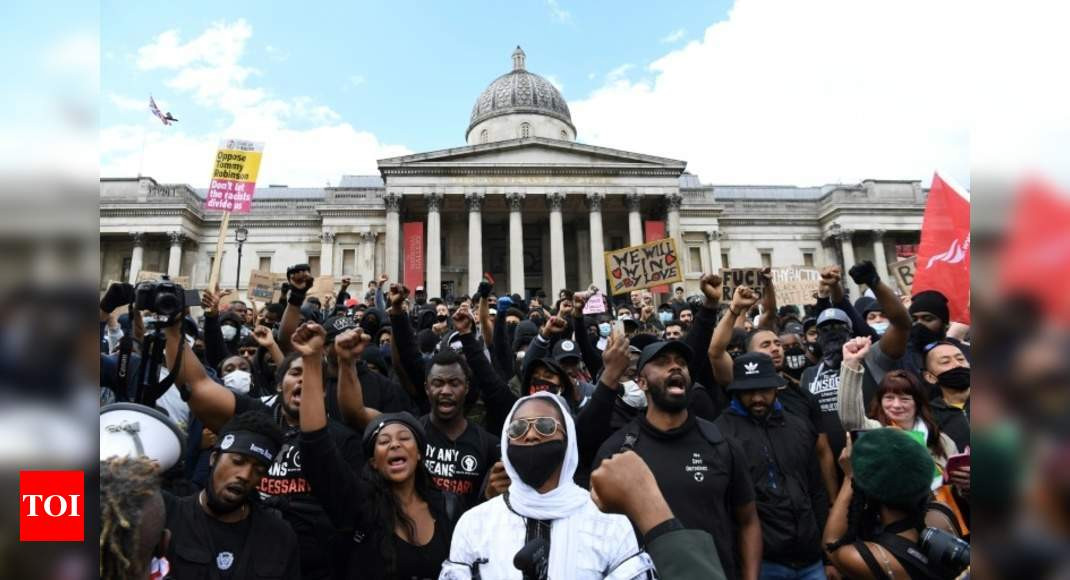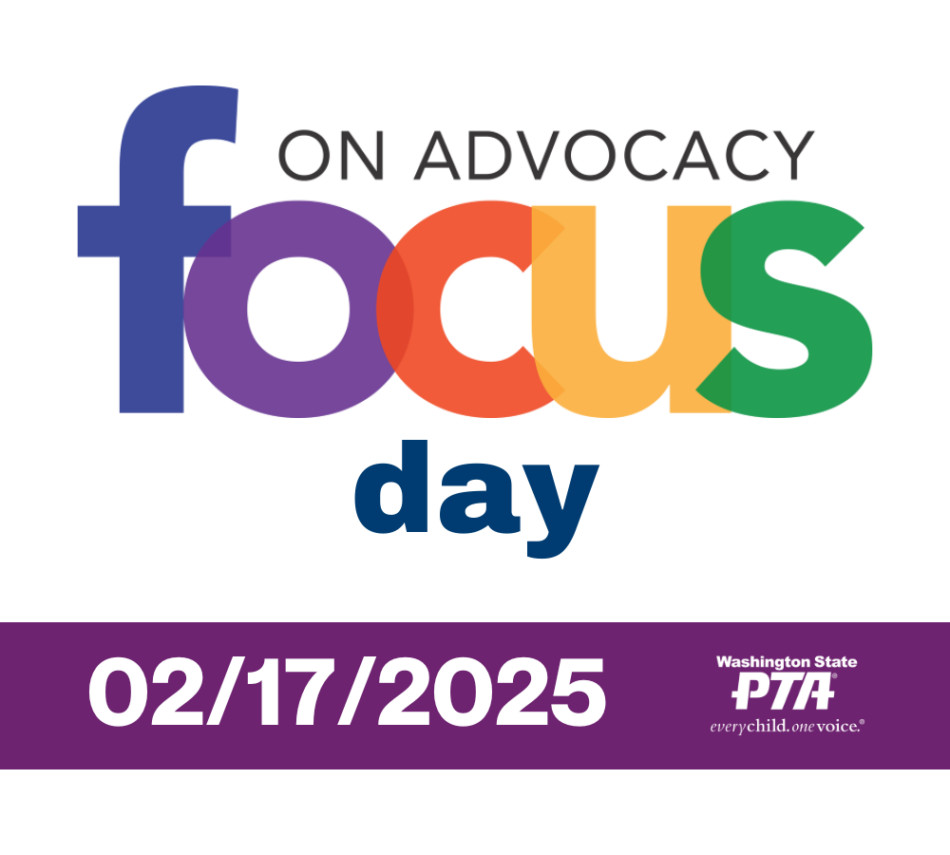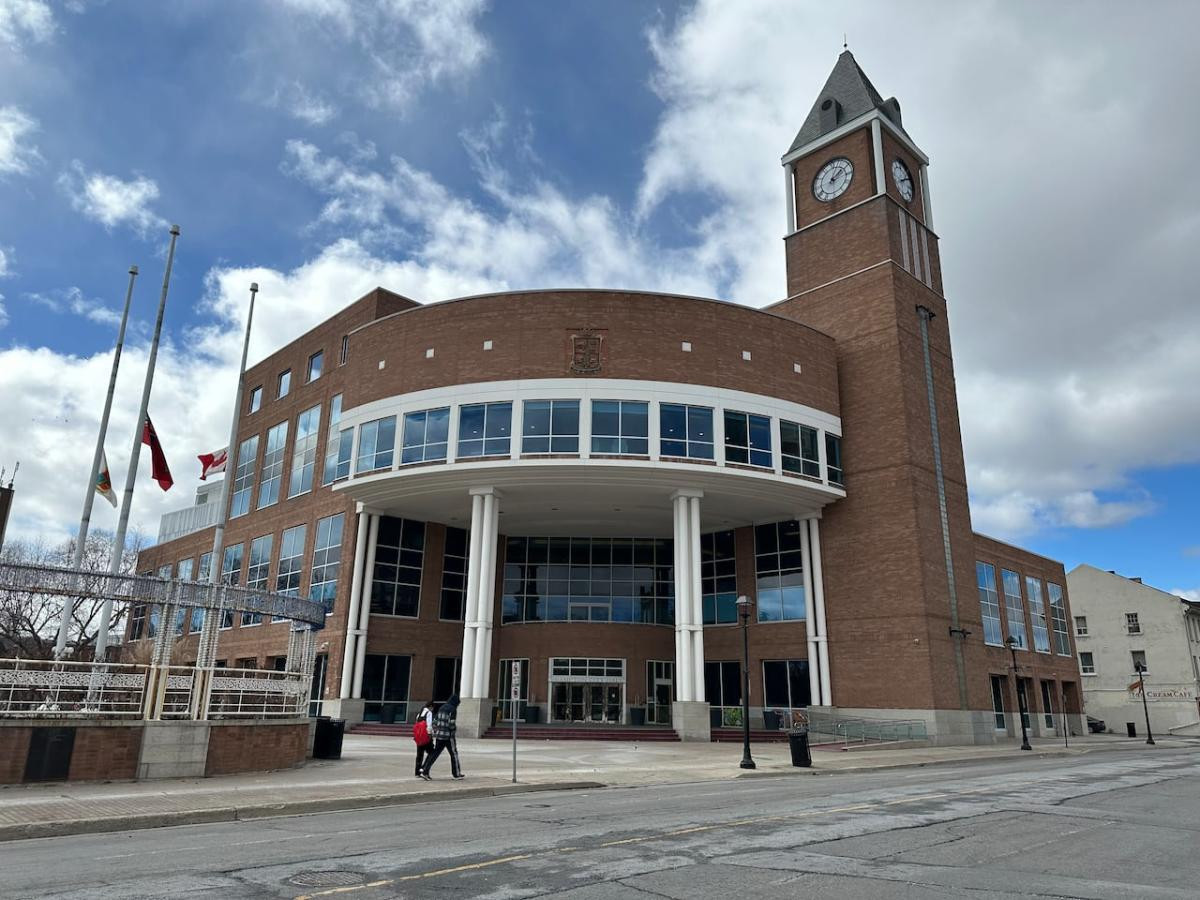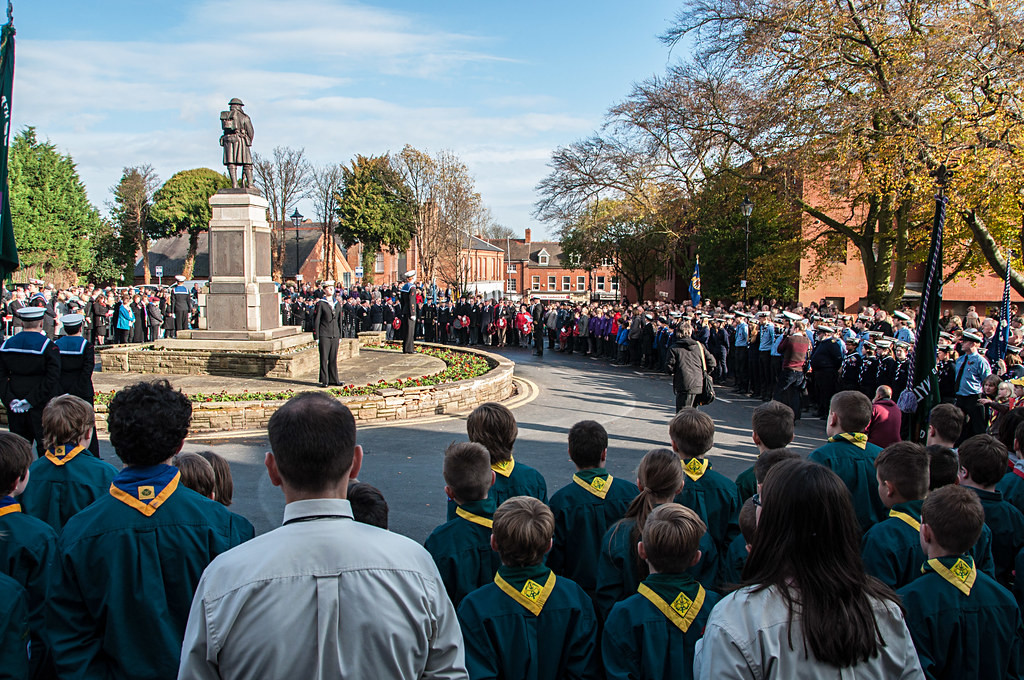As Election Day 2024 approaches, Princeton's nonpartisan Vote100 initiative has made a significant impact on student civic engagement on campus. In less than a decade, voting registration rates among Princeton undergraduate and graduate students more than doubled largely thanks to the program. Seventy-five percent of eligible Princeton students voted in the last general election.
A Decade of Civic Engagement
Established in 2015, Vote100 is led by students in collaboration with the Office of the Dean of Undergraduate Students (ODUS). The group’s mission is to encourage Princeton students to become more civically engaged, and to get eligible undergraduate and graduate students to vote in local, state and national elections. Vote100’s work over the last nine years includes campus voter registration drives, debate watch parties, assisting students with requesting absentee ballots, arranging free rides to and from the polls in Princeton, and social media campaigns to raise awareness about the importance of participating in elections and democratic processes.
Voting Rates Skyrocket
The group’s sustained efforts have helped increase registration and voting rates among Princeton students. In the 2014 midterm elections, 40% of eligible Princeton undergraduate and graduate students registered to vote. In the 2022 midterms, the registration rate for eligible voters stood at 81%. It was 88% in the 2020 general election. This fall, 788 students registered through the TurboVote digital platform.
Partnerships and Collaboration
Vote100 and ODUS have also partnered with the ALL IN Campus Democracy Challenge, the New Jersey Department of State's Ballot Bowl, and other colleges and universities in the state to inspire more students to vote. On Sept. 28, Princeton for the second time hosted the New Jersey Voting Summit that brought together students, faculty and staff from public, private and community colleges and universities. Participants shared best practices from their campuses and brainstormed creative ways to motivate their peers to participate in the electoral process. Eric Kipnis, manager of constituent relations at the New Jersey Department of State, spoke to students about voting as an essential part of civic engagement.
In addition to Princeton, the schools represented at the Sept. 28 event were: Berkeley College, Centenary University, Mercer County Community College, Middlesex College, Montclair State University, New Jersey Institute of Technology, Ramapo College of New Jersey, Raritan Valley Community College, Rider University, Rowan University, Rutgers University-Camden, Rutgers University-Newark, Rutgers University-New Brunswick and The College of New Jersey.
Beyond the Polls: A Culture of Engagement
Vote100’s impact extends beyond just increasing voter registration and turnout. The initiative also cultivates a culture of civic engagement on campus by promoting discussions about political issues, encouraging students to become more involved in their communities, and providing them with the resources and tools they need to participate in the democratic process. The group’s efforts have helped to create a more politically aware and engaged student body at Princeton, where students are more likely to be informed about current events, to participate in political debates, and to feel empowered to make a difference in the world.
An Election Soundscape
This noise has come to a crescendo at Princeton as the 2024 presidential election approaches. Political organizations of all affiliations have held events all throughout the semester, drumming up civic engagement both on and off campus. Now, on the eve of election day, students will face their final opportunity to decide how and whether they will vote. Many, meeting early deadlines for mail-in and absentee ballots, have had to make that decision already.
Today on Daybreak, we reflect on the political climate on campus this semester, looking at how students engaged with democracy and listening in to understand what an election does to the campus soundscape.
The Future of Civic Engagement
Vote100’s success is a testament to the power of student leadership and the importance of civic engagement. The program serves as a model for other colleges and universities across the country who are seeking to increase student voter turnout. In a time when many are feeling disillusioned with the political process, it is encouraging to see young people like those at Princeton stepping up and making a difference in their communities. The future of democracy rests on the shoulders of those who are willing to engage in the process, and Vote100 is showing that young people are ready to take on that responsibility.




